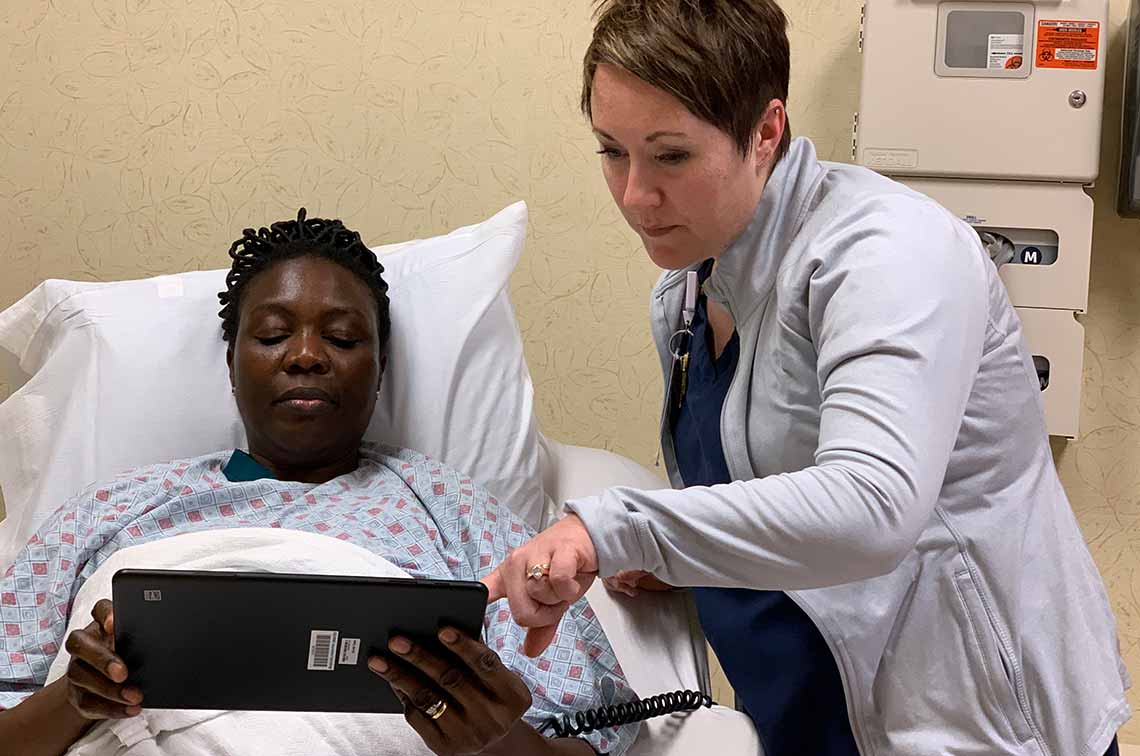
Discover how we're providing tools to improve access to health care.
Among their recent breakthroughs is a procedure to help some patients avoid hip replacement surgery by strengthening and preserving their original hip joints.
The bone-hardening method traditionally had been used in knee surgery, says Dr. Kelton Vasileff, an orthopedic surgeon at the Ohio State Wexner Medical Center.
"We want to preserve the native hip, because once you have a hip replacement, there's no going back," he says. "Hip implants have a potentially finite lifespan, and problems down the road could mean more surgery, which is always more difficult than the first surgery."
During the surgical procedure, a bone substitute material is injected into bones near the hip joint, filling small gaps in the bone. Over time, a patient's body replaces that substitute with their own healthy bone.
"In the past, a replacement would've been the only long-term option for many patients with labrum tears, mild cartilage damage, mild osteoarthritis in the hip and bone cysts or bone marrow lesions,” Vasileff says.
Recent breakthroughs by Ohio State sports medicine experts are helping patients potentially avoid hip and knee replacements and providing durable treatments that will keep patients performing at their best. Click to tweet this story
Ohio State physicians also have developed innovative alternatives for treating common knee injuries. They were the first in the U.S. to use a plastic meniscus implant that could reduce the need for knee replacement surgeries nationwide.
In this unprecedented procedure, physicians created a custom-fit plastic device that replaces a patient's own meniscus (the fibrocartilage between the thigh and shin bones).
"We're hoping it can not only alleviate pain, but also help patients delay or avoid a knee replacement surgery altogether," says Dr. Christopher Kaeding, the executive director of Ohio State Sports Medicine. "Otherwise, once the meniscus is damaged, pain often sets in and can lead to arthritis and the need for knee replacement."
On the heels of that trial's development arrived another advancement for patients with knee damage: Ohio State surgeons became the first in Ohio to treat knee cartilage damage using healthy cartilage regrown from a patient's own cells.
Dr. David Flanigan, the orthopedic surgeon who spearheaded the procedure, says that using this cartilage implant could improve long-term outcomes for patients who otherwise would have undergone microfracture surgery. While microfracture surgery may improve symptoms for a time, it doesn't create healthy cartilage that withstands everyday movement long-term.
"The hope is that embedding patients with their own cells will lead to a more durable replacement of the lost cartilage and improve patient outcomes," Flanigan says.
These innovative treatments are just the beginning. Sports medicine physicians, orthopedic surgeons, nutritionists and other medical specialists are collaborating every day at Ohio State to discover new ways to return their patients safely to the activities they love.
Learn more about Ohio State Sports Medicine
Christopher Kaeding, MD, discusses a new innovative treatment for common knee injuries.